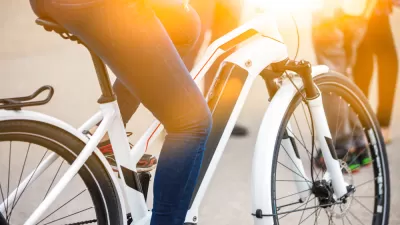Paula Cocozza discusses Britain's "new ruralism" trend as "the pastoral idyll" invades its cities. Is it possible to have the best of both worlds within walking distance of each other?
"Everywhere you look, the countryside has crept into cities and towns – the way we shop, eat, red, dress, decorate our homes, spend our time," writes Cocozza. Wildflower meadows have filled abandoned sites and stadiums. Wooden forts and swings have replaced the metal frames of children's playgrounds. Liberty, the London department store, decorated its famous windows with artificial birds nest and dandelions. Furniture makers have seen a growing preference for pine and oak, and Elle Decoration proclaims "the wonders of wood." The recession has brought about "a maturing of the urban attitude, and it doesn't feel right to have things that are too shiny and polished," believes Marcus Fair, founder of the online magazine Dezeen. He adds, "people got bored by the debate of countryside v city, and realised that the best part of the country could be brought into the city."
The rustic theme shows "something of the same impulse behind them all," observes Cocozza. "We can't get enough nature in our lives." However, she points out "[i]t is one of the conundrums of the urban search for a closer connection with the rural world that the search itself has resulted in a fancification of simple goods." Pipers Crisps assures customers that their crisps are "made by farmers," and with many varieties of eggs, "[t]hese days an egg is rarely just an egg." Cocozza poses the question, "When elements of rural life feel this fashionable, does that make our interest in all things country less valid, and more a kind of trendy role play?" That depends, says Ralph Pite, a professor of literature at Bristol University, who is writing a book on "ideas of the simple life." His theory is that "people find the countryside damaged when they travel to it, and want to bring in their own spaces what has disappeared out there" and "[i]t's a question of finding ways of working within [industrial society] to make it better."
"It would not be unresonable, after all," acknowledges Cocozza, "to respond to the perils of globalisation and irresponsible banking with a quest for more contact with nature, more attention to the provenance of small, everyday things."
FULL STORY: The new ruralism: how the pastoral idyll is taking over our cities

Planetizen Federal Action Tracker
A weekly monitor of how Trump’s orders and actions are impacting planners and planning in America.

Restaurant Patios Were a Pandemic Win — Why Were They so Hard to Keep?
Social distancing requirements and changes in travel patterns prompted cities to pilot new uses for street and sidewalk space. Then it got complicated.

Maui's Vacation Rental Debate Turns Ugly
Verbal attacks, misinformation campaigns and fistfights plague a high-stakes debate to convert thousands of vacation rentals into long-term housing.

Boulder Eliminates Parking Minimums Citywide
Officials estimate the cost of building a single underground parking space at up to $100,000.

Orange County, Florida Adopts Largest US “Sprawl Repair” Code
The ‘Orange Code’ seeks to rectify decades of sprawl-inducing, car-oriented development.

Maui's Vacation Rental Debate Turns Ugly
Verbal attacks, misinformation campaigns and fistfights plague a high-stakes debate to convert thousands of vacation rentals into long-term housing.
Urban Design for Planners 1: Software Tools
This six-course series explores essential urban design concepts using open source software and equips planners with the tools they need to participate fully in the urban design process.
Planning for Universal Design
Learn the tools for implementing Universal Design in planning regulations.
Heyer Gruel & Associates PA
JM Goldson LLC
Custer County Colorado
City of Camden Redevelopment Agency
City of Astoria
Transportation Research & Education Center (TREC) at Portland State University
Camden Redevelopment Agency
City of Claremont
Municipality of Princeton (NJ)





























